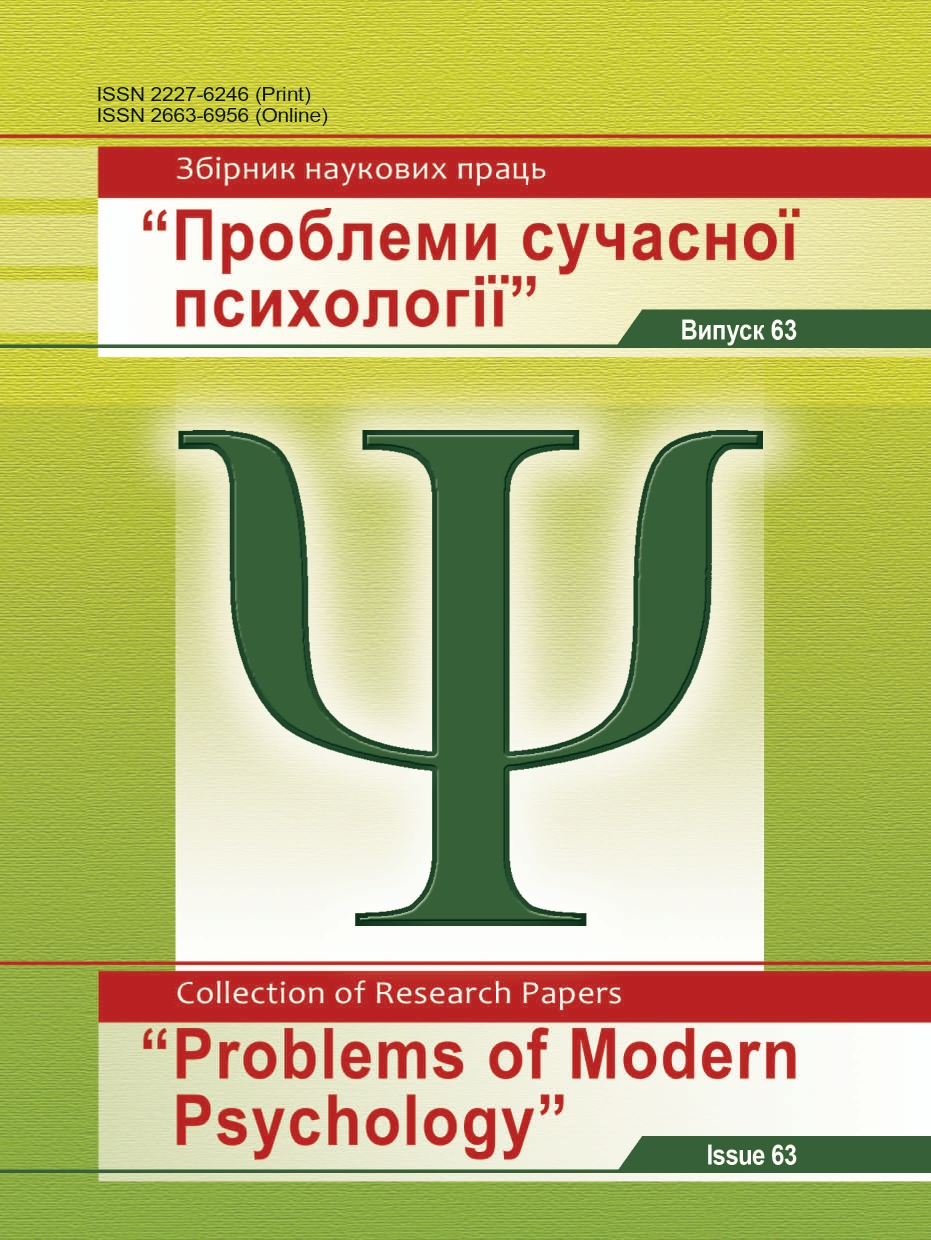Motivation of Employees’ Personal Self-Construction
DOI:
https://doi.org/10.32626/2227-6246.2024-63.290-307Keywords:
motivation of personal self-construction of personnel, structural and organizational process, motivational paradigm of personal self-construction of personnel, career, theories of self-reinforcement, self-regulation, self-efficacy, positive psychologyAbstract
The aim of the article is to analyze the phenomena and features of motivation as a psychological phenomenon regarding the implementation of constructivism in the «relationship» of personnel and the organization, when the initiative of interaction belongs to a person as a subject of self-creation and production activity.
Мethods: with the help of methods of analysis, synthesis and comparison, career phenomena are highlighted in the relationship of self-design and its management at the individual and organizational levels, which stimulates a positive personal environment of interaction, promotes active behavior in the application of positive personality resources. The categorical and structural-functional methods, units of analysis of motivational structures in the manifestation of conflictogens-tensions of a personal-constructive and communicative character were used. Methods of systematization and generalization as well as modeling method were applied .
Research results. The congruence of well-being and personal self-construction of the organization’s personnel in the context of motivation for higher quality and effective organizational activity on the one hand and movement in the direction of one’s own well-being on the other is determined. The practical possibilities of motivation of self-reinforcement, self-regulation, self-efficacy, as well as the effectiveness of the application of the complex theory of motivation are considered in detail. The key problem of motivation in the process of personal self-construction of personnel is determined by the interdependent formed value orientations in relation to the profession and the vision of the personal meaning of the activity, which corresponds to deep personal meanings.
Conclusions. The specific epistemological context of social constructionism in the motivational paradigm of personal self-construction of personnel, based on integrity, contextuality and preventiveness, is proven. The PERMA model of positive psychology is an important tool in relation to the concepts of self-construction motivation of personnel. Local structure-forming characteristics of the personal self-construction of the personnel of organizations in the motivational dimension are the behavioral capabilities of employees, realized in the recognition of achievements, positive feedback, which initiates the subject of self-construction.
Downloads
Published
How to Cite
Issue
Section
License
Copyright (c) 2024 Solomka Tamara

This work is licensed under a Creative Commons Attribution-NonCommercial 4.0 International License.
Copyright
The Editorial Board has the full right to publish original scientific papers containing results of theoretical and experimental research works which are not currently subject to review for publication in other scientific editions. The Author shall transfer to the editorial board of the Collection the right to spread the electronic version of the paper, as well as the electronic version of the paper translated into English (for papers originally submitted in Ukrainian and Russian) by all kinds of electronic means (placement at the official website of the Collection, electronic databases, repositories etc).
The Author of an article reserves the right to use materials of the paper, without approval with the editorial board and the founders of this Collection: a) partially or fully, for educational purposes; b) for writing own dissertation papers; c) for preparation of abstracts, conference reports and presentations.
The Author of an article can place electronic copies of the paper (including the final electronic version downloaded from the official website of the Collection) at:
- personal web resources of all Authors (websites, webpages, blogs etc.);
- web resources of the institutions where the Authors are employed (including electronic institutional repositories);
- non-profit public access web resources (for example, arXiv.org).
But in all cases, it is obligatory to have a bibliographic reference to the paper, or a hyperlink to its electronic copy placed at the official website of this Collection.






